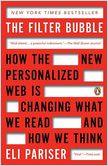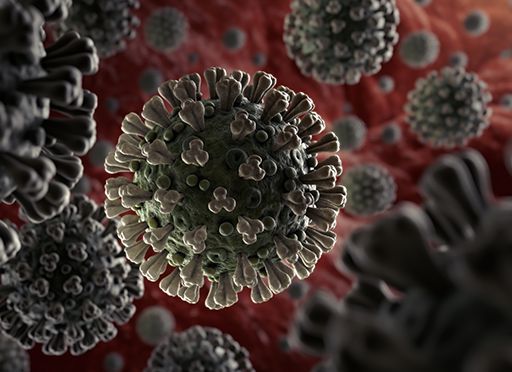“Everything Will Be All Right” – Hopefully
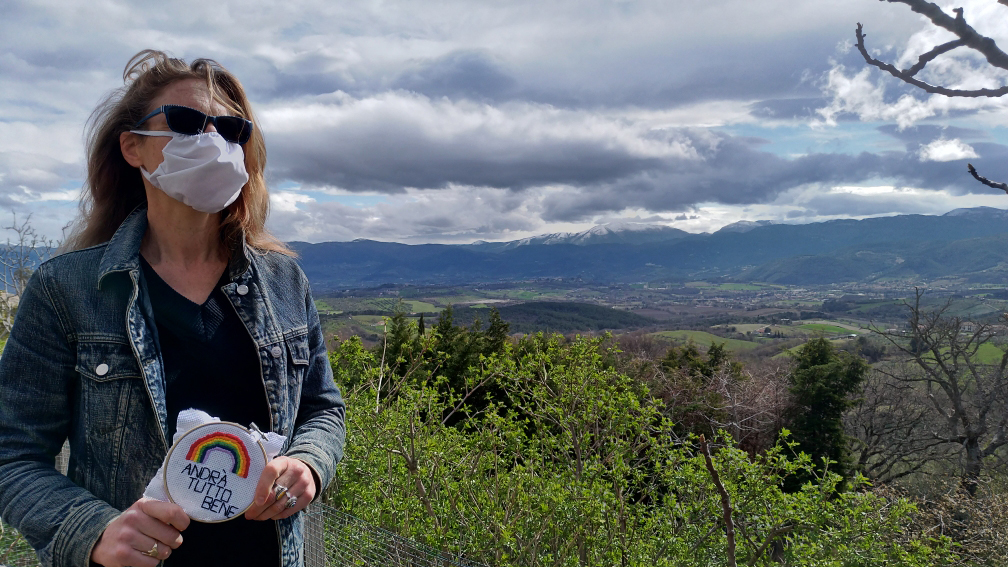
Since the start of this week, everybody has been entirely confined to their homes. No more running, bicycling or walking outside, unless you can present a valid medical justification for the need to exercise. Now you can only stretch in front of your home and make a weekly trip to the nearest supermarket. All factories, offices and businesses are shut down, unless they provide an essential service. Exceptions from the rules are becoming rarer and sanctions more severe. It feels as if our living space is shrinking by the day.
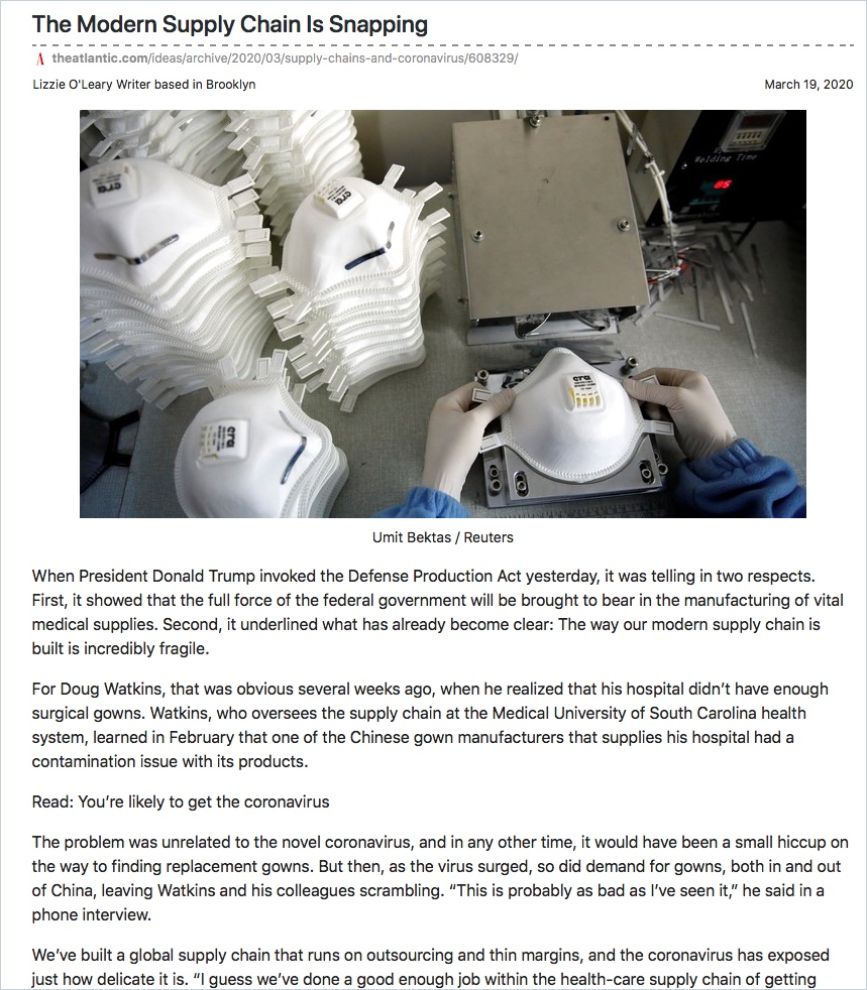
In retrospect, the ramping up of the lockdown shouldn’t have come as a surprise. The news bulletins of the past week were dismal to say the least: Every day, the death toll from the novel coronavirus kept rising. Horrifying images of military trucks transporting the deceased out of the hardest hit areas in northern Italy were looping on TV, desperate hospital staff were breaking down in front of cameras and patients were dying on camp beds in tents.
Saving Civilization or a New Barbarism?
Those heartbreaking images raised the level of fear and panic to new heights. Yet they also seem to have strengthened people’s resolve to do whatever it takes for overcoming this crisis:
Nine in 10 Italians agree on the most recent tightening of restrictions, and approval ratings for Prime Minister Giuseppe Conte are at an all-time high.
Some observers have already declared victory over the plague of extreme right-wing populism that seemed poised to grab power. But I fear that this is premature.
Last week, I came across a viral voice message on WhatsApp that took my breath away. In it, an alleged “Italian girl” makes an aggressive pitch: “Thank you dear Mr. Macron and dear Mrs. Merkel for having abandoned us in a moment of need.” She goes on to say that Rome built civilization, only to have it destroyed by savage barbarians from the north, and then rebuilt it again during the Renaissance only to be dominated by the north, once again. Everything worth living for – from musica through moda to mortadella – was invented by Italians, but this time they would refuse to come to the barbarians’ rescue again.
It’s ludicrous and laughable, as many friends have assured me. But it is also deeply troubling and threatening, not least because the meme has since been flooding social media in all sorts of shapes, forms and languages, receiving likes and applause from individuals I would never have thought susceptible to it. Francis Fukuyama argues in Identity that much of human behavior is driven by a desire for recognition and respect – or a sense of humiliation and invisibility.
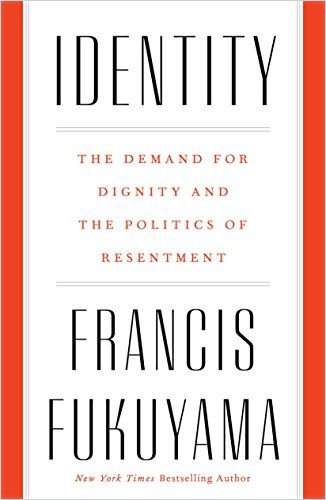
I see a lot of hurt feelings and wounded pride in the anti-German, anti-French, anti-European and pro-Chinese propaganda which is multiplying at the fringes of my own social media bubble these days. Many mistakes were made in this crisis, and the slow response of Italy’s European allies to a country weakened by a decade of austerity and underinvestment in public services is one of them. Yet attempts to fan the flames of nationalism and conspiracy theories are appalling.
We Should Grow Together, Not Split Apart
All around us there have been admiring signs of solidarity and moments of kindness. A woman in our village, who used to sew underwear on contract, has made 100 face masks for everyone who missed out on buying one before the shops ran out (at this point, just about everybody wears a mask in public). A young neighbor has offered to fetch groceries and medication for the homes of mostly elderly residents. People have been painting, crocheting and embroidering rainbows with the tagline #andratuttobene – #everythingwillbealright – and they have joined in singing great Italian classics from balconies all over the country.
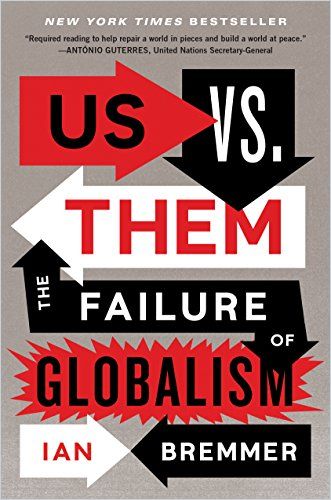
Still, those same appeals to community spirit are used by some to close ranks and declare a newfound Italian exceptionalism. Previously, the national flag flew only in conjunction with international soccer matches, but now a great number of Tricolores are flapping over deserted alleys, streets and squares. For some it is a message of inclusion, but for others it is all about excluding the alien.
Somewhere Over the Rainbow
It seems that staying connected online can bring out the best in people. After all, we are eagerly sharing cooking, crafting and homeschooling ideas, organizing neighborhood support networks and posting irresistibly cute videos of dogs doing Yoga. But it can also bring out the worst: Asking Why Good People Turn Bad Online, Gaia Vince concludes that online communities lack the characteristics which favor cooperation, as physical distance reduces the risk of being taken to task for bad behavior, while algorithms prioritize content that provokes outrage.
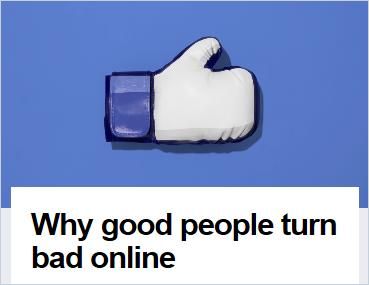
More than anything, we are losing our sense of existence outside the echo chamber, drifting away from the world we used to recognize and unsure what sort of world we will find ourselves in tomorrow.

What Happened When We Paired Thousands of Strangers to Talk Politics
TED Conferences LLCAnd yet, possibly, we can see a glimmer of hope after so much death and disappointment. Over the past few days, the number of new cases in Italy has begun to slow down. The curve may be flattening and, at least outside Lombardy, the health system may be able to cope with the current rate of infections. Undoubtedly, we will have more flare-ups and disappointments, but we might be nearing the worst of this phase. Outside Italy, things are just starting to get bad and our hopes are with our friends across the globe. But if we pull together, support each other and learn both from our mistakes and our successes, we will get through this.
And maybe we will also learn how to tackle the many other existential crises that humanity faces in the time to come.
For more information on the COVID-19 crisis, please check out our related Coronavirus and Epidemics channels.

